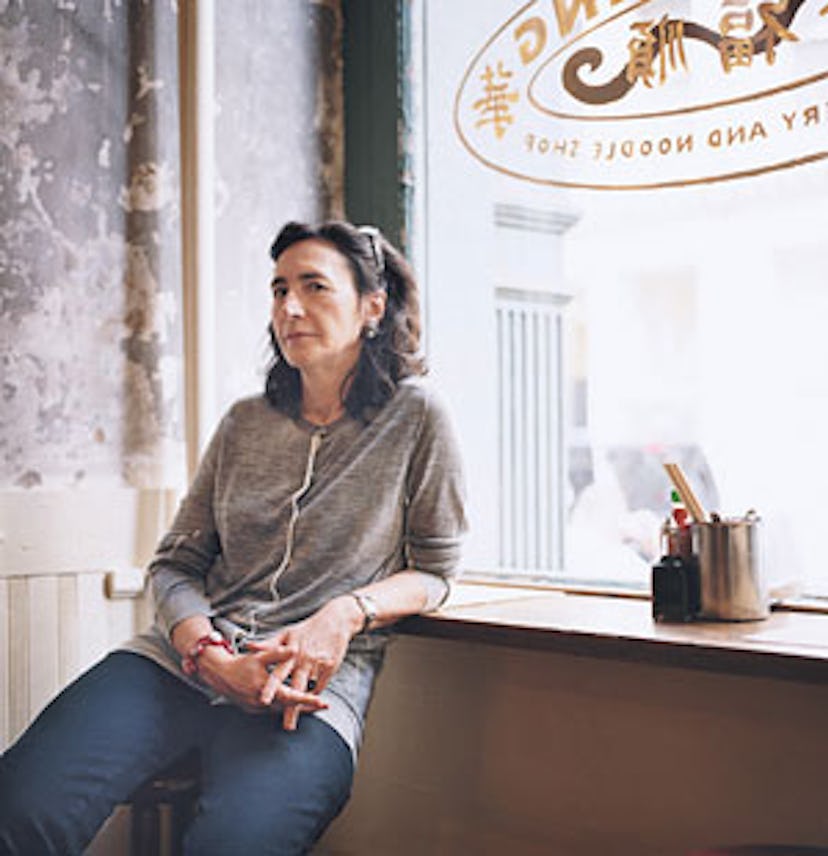Elegant Prose

Gliding into a coffee shop in New York’s Greenwich Village on a rainy June day, her tall, lean figure clad all in black, Francine Prose is the very picture of serenity. But in this case, it becomes clear almost as soon as she starts talking, looks are deceiving. Beneath her cool, unruffled appearance stews a pot of frustration waiting to boil over. “I’m in a rage all of the time,” she says, explaining that her ire is stoked by everything from the Valerie Plame affair to America’s lack of compassion for the elderly. “In the Eighties,” she continues, between sips of lemonade, “I began to notice that even ordinary social exchanges were actually horrible. I couldn’t believe the things people would say to each other! And then I would think, Is there something I can do with this?”
It seems there was. Prose, 61, has channeled her anger into a satirical literary voice that takes no prisoners, whether skewering rich suburbanites (Primitive People) or revealing the less altruistic side of nonprofit leaders (A Changed Man). Over the course of three decades, she has penned countless op-eds, articles and book reviews for The New York Times; critical essays; a slew of nonfiction tomes on subjects that range from Caravaggio to gluttony; and, most notably, 12 novels, including her latest, Goldengrove, out in September from HarperCollins. She teaches regularly and is president of the literary organization PEN America. Even close friends suspect she has superpowers.
“She is so profoundly productive as a writer, yet has really trenchant things to say about the trashiest shows on TV,” marvels longtime friend and author Scott Spencer. “It’s like there are three Francines, and while I’m conversing with one, the other two are off doing other things.”
Goldengrove, a pitch-perfect coming-of-age tale, is narrated by a 13-year-old girl in the wake of her sister’s death. It is softer and less biting than what readers have come to expect from Prose—a fact that hasn’t escaped the author. “I kept reading it and thinking, This doesn’t sound like a novel I would write,” she says, attributing its haunting tone in part to having written it while grieving the loss of her mother. “It’s much more emotional, elegiac.”
The same cannot be said of her provocative essays. In 1998 her piece in <em?Harper’s, “Scent of Woman’s Ink: Are Women Writers Really Inferior?,” contended that female writing is still considered second-rate by most readers and elicited angry letters from Mary Gaitskill and Annie Proulx. The following year, another Harper’s discourse, “I Know Why the Caged Bird Cannot Read,” accused public school English curriculums of emphasizing diversity over quality. (The title is an unflattering reference to Maya Angelou’s autobiography.) But Prose insists that she is never looking to pick a fight. “I think of myself as someone with a kind of Tourette’s,” she says. “I cannot help saying the thing you’re not supposed to say.”
Writer Richard Price, a friend for almost two decades, sees Prose’s declarations as more deliberate. “She enjoys deflating conventions,” he says.
Raised in Ditmas Park, Brooklyn, the daughter of two doctors, Prose graduated from Radcliffe in 1968 and earned a master’s in English from Harvard. Her first novel, Judah the Pious, was published in 1973.
Prose and her husband, artist Howard Michels, split their time between a Greenwich Village apartment and a home in New York’s Hudson Valley, where they raised their now grown sons, Leon and Bruno. Spalding Gray lived in the guesthouse for two summers, and country dinner parties bring together any manner of guests, from state troopers and photographers to carpenters. “It’s come one, come all,” says Robert Duffy, president of Marc Jacobs International and a close friend. “Francine is the most nonjudgmental person I’ve met in my entire life.”
And possibly the most tireless. Prose is currently writing a book on the cultural history of The Diary of Anne Frank, helming classes at both Bard and Baruch colleges, and planning her next novel, which will be set in an Eastern European embassy. A profound love of storytelling, she says, continues to drive her. As a child, she recalls, “I was always reading, and I wanted to be in the world of the book. Once I realized I could create that world, it was a revelation.”